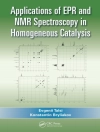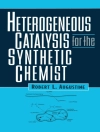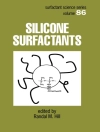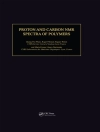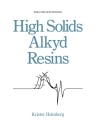A comprehensive introduction to the design, synthesis, characterization, and catalytic properties of nanoporous catalysts for the biomass conversion
With the specter of peak oil demand looming on the horizon, and mounting concerns over the environmental impact of greenhouse gas emissions, biomass has taken on a prominent role as a sustainable alternative fuel source. One critical aspect of the biomass challenge is the development of novel catalytic materials for effective and controllable biomass conversion. Edited by two scientists recognized internationally for their pioneering work in the field, this book focuses on nanoporous catalysts, the most promising class of catalytic materials for the conversion of biomass into fuel and other products.
Although various catalysts have been used in the conversion of biomass-derived feedstocks, nanoporous catalysts exhibit high catalytic activities and/or unique product selectivities due to their large surface area, open nanopores, and highly dispersed active sites. This book covers an array of nanoporous catalysts currently in use for biomass conversion, including resins, metal oxides, carbons, mesoporous silicates, polydivinylbenzene, and zeolites. The authors summarize the design, synthesis, characterization and catalytic properties of these nanoporous catalysts for biomass conversions, discussing the features of these catalysts and considering future opportunities for developing more efficient catalysts. Topics covered include:
* Resins for biomass conversion
* Supported metal oxides/sulfides for biomass oxidation and hydrogenation
* Nanoporous metal oxides
* Ordered mesoporous silica-based catalysts
* Sulfonated carbon catalysts
* Porous polydivinylbenzene
* Aluminosilicate zeolites for bio-oil upgrading
* Rice straw Hydrogenation for sugar conversion
* Lignin depolymerization
Timely, authoritative, and comprehensive, Nanoporous Catalysts for Biomass Conversion is a valuable working resource for academic researchers, industrial scientists and graduate students working in the fields of biomass conversion, catalysis, materials science, green and sustainable chemistry, and chemical/process engineering.
关于作者
Edited by
Feng-Shou Xiao, Zhejiang University, Hangzhou, China
Liang Wang, Zhejiang University, Hangzhou, China
Series Editor
Christian Stevens, Faculty of Bioscience Engineering, Ghent University, Belgium



